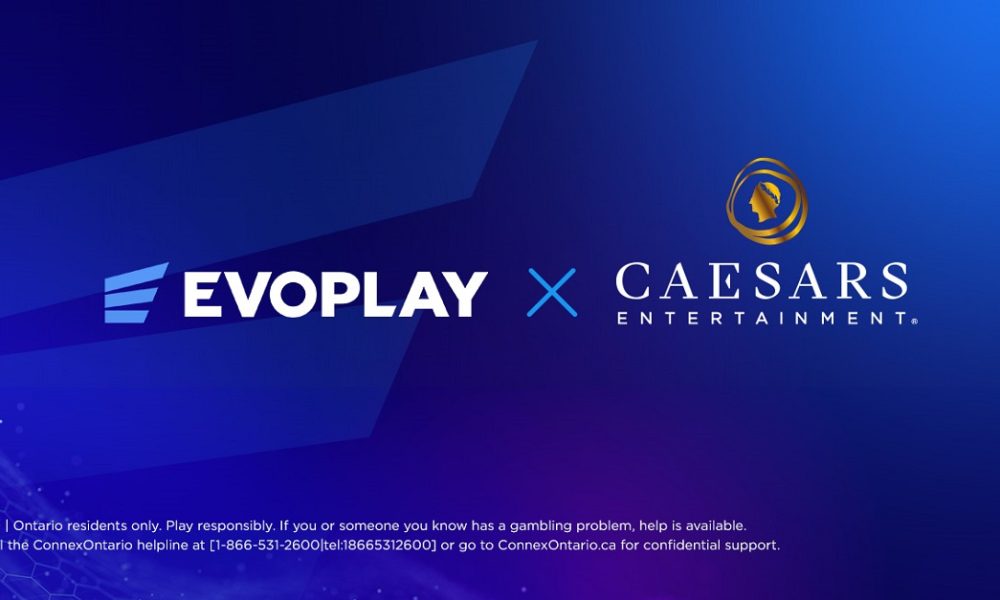

Canada
Rivalry Announces All-Time Record Business Performance in October
Rivalry Corp., an internationally-regulated sports betting and media company, is pleased to announce that the Company saw record results in its business across multiple key performance indicators in the month of October 2021. The Company also provided clarification on its regulatory application in Ontario. All dollar figures are quoted in Canadian dollars.
“In October Rivalry delivered an all-time record performance across nearly all KPIs. I believe this is a testament to the focus and drive of the team in our first month as a public company,” said Steven Salz, Co-Founder and CEO of Rivalry. “In addition to going public, we launched Rushlane, an innovation in Casino games that we believe will reinvent the category (MMOGGs), applied to become a fully registered operator for sports betting and internet gaming in our home province of Ontario, and experienced record activity across the business. These milestones help to enhance Rivalry’s global brand equity as a leader in next gen esports betting, our position as innovators in the sector, and increase the number of geographies globally that Rivalry can legally operate in.”
Highlights for October 2021 include the following:
- Betting handle1 of $12.8M was the highest monthly figure ever recorded by the Company, exceeding the previous monthly high by more than 40% and the October 2020 (YoY) figure by more than 350%.
- Monthly active bettors similarly reached a new all-time high, more than 80% above the previous monthly record and up more than 200% from October 2020.
- The Company officially launched Rushlane, a proprietary casino game that marks the creation of a new category for online gaming: Massively Multiplayer Online Gambling Games (MMOGG).
- With the official launch of Rushlane, therefore exiting the soft launch phase, Rivalry saw a more than 150% increase in total Rushlane wagers over the previous month.
- Brand engagement continued to grow, with nearly all Rivalry content channels seeing a 50% increase month-over-month in engagement through October, with some growing by triple digits.
- The Company’s subordinate voting shares commenced trading on the TSX Venture Exchange on October 5, 2021.
“This October saw a great combination of esports events. We had both League of Legends Worlds and Dota 2 The International in October, which marks two of the biggest esports events of the year. Esports like traditional sports does have seasonality, that said, the results we delivered in October demonstrate the significant torque in the business and our ability to attract and convert new customers, and engage existing ones,” said Steven Salz, Co-Founder and CEO. “We also saw a meaningful increase in traditional sports betting, which will support our product mix, and reduce seasonality as the esports and traditional sports betting calendar generally spike at different times in the year,” Salz continued. “Given the demographic we primarily serve, being on average at least a decade younger than sports bettors on traditional sportsbooks, the volume of bets Rivalry saw to deliver a $12.8 million monthly handle was significant. As our user demographic matures, we believe the corresponding growth in our total addressable market presents a significant value capture opportunity that will continue to differentiate Rivalry from its peer group as we deliver the product and brand of choice to this next generation.”
The Company expects to provide additional details later this month when it reports financial results for the quarter ended September 30, 2021.
Clarification on Ontario Regulatory Process
On October 28, 2021, the Company announced that it had submitted an application to the Alcohol and Gaming Commission of Ontario (the “AGCO“) to become a fully registered operator of internet gaming and sports betting in the province. The Company wishes to provide further details to more fully describe the anticipated regulatory process.
Upon Rivalry’s registration with the AGCO, the Company will seek a commercial agreement with the AGCO’s subsidiary, iGaming Ontario. With this registration and agreement, the Company will be able to offer its esports and sports betting products and one-of-a-kind casino offering, Rushlane, to customers in Ontario. The Company anticipates that the successful completion of this process could result in Rivalry commencing esports, sports betting, and iGaming operations in Ontario within the first half of 2022.
Canada
absolutebet Secures AGCO Registration as an Internet Gaming Operator in Ontario

Internet Gaming Operator by the Alcohol and Gaming Commission of Ontario (AGCO).
This significant milestone authorizes absolutebet to offer regulated iGaming services in Ontario’s legal market under the oversight of AGCO and iGaming Ontario (iGO).
The registration marks a key step in absolutebet’s mission to bring a trusted, responsible, and innovative online casino experience to Ontario players. absolutebet is committed to operating with integrity and transparency, meeting all provincial standards for player protection, responsible gambling, anti-money laundering, and game integrity.
“Securing AGCO registration is more than a milestone—it’s the start of absolutebet’s journey in one of the most exciting regulated markets in the world,” said Chen Truman, Founder of absolutebet. “We are building a brand that will grow with the Ontario community and set the stage for future expansion.”
On the regulatory milestone, Krisztina Kalla, Legal & Regulatory Compliance Advisor of absolutebet, commented: “I’m incredibly proud to see all the hard work behind this license pay off. Securing AGCO registration has taken months of preparation and close collaboration with regulators and partners. I am very happy to see the result of that work, and even more excited as we move into the launch phase and open up the absolutebet community to Ontario players in a fun and responsible way.”
Ontario is recognized as one of the most competitive and fast-growing regulated iGaming markets in North America. With AGCO registration secured, absolutebet will move forward with the final stages of its iGO onboarding process in preparation for launch.
The post absolutebet Secures AGCO Registration as an Internet Gaming Operator in Ontario appeared first on Gaming and Gambling Industry in the Americas.
Alex Malchenko Head of Sales at Evoplay
Evoplay strengthens Ontario presence in partnership with Caesars Entertainment

Evoplay, the award-winning game development studio, has partnered with Caesars Entertainment to expand its footprint in the Canadian market, following its initial entry earlier this year. The partnership integrates 20 of the studio’s top-performing titles onto Caesars Palace Online Casino, Horseshoe Online Casino and Caesars Sportsbook & Casino in Ontario, including fan-favourites such as Hot Triple Sevens, Triple Chili, and The Greatest Catch Bonus Buy.
Having announced its official entrance into Ontario in March, the collaboration with Caesars marks a significant step in Evoplay’s local strategy. Further standout releases, such as Inner Fire Bonus Buy and Hot Volcano, also launched as part of the initial package, with additional player favourites, including Fruit Nova and Ice Mania.
The collaboration underlines Evoplay’s commitment to working with leading operators to deliver high-quality content tailored to regional audiences.
Alex Malchenko, Head of Sales at Evoplay, said: “Launching with Caesars in Ontario marks a key milestone in our North American strategy.
“It reflects both the strength of our portfolio and our commitment to providing innovative, high-performing content to operators of the highest caliber.”
Ricardo Cornejo Rivas, Vice President of Online Gaming at Caesars Digital, said: “Evoplay brings a fresh and dynamic approach to online gaming, which we’re excited to offer to our players in Ontario. This portfolio of standout titles adds to our growing content library and furthering our ongoing goal of delivering top-tier entertainment experiences to our players.”
The post Evoplay strengthens Ontario presence in partnership with Caesars Entertainment appeared first on Gaming and Gambling Industry in the Americas.
Canada
iGaming Ontario Appoints Joseph Hillier as its New President and CEO

The iGaming Ontario Board of Directors has announced Joseph Hillier as the organization’s new President and Chief Executive Officer, effective September 8, 2025. Joseph’s depth in the Ontario igaming market combined with successful public and private sector careers make him the ideal President and CEO at this critical point in iGaming Ontario’s growth.
Joseph was most recently Chief Strategy Officer and Corporate Secretary at the Alcohol and Gaming Commission of Ontario (AGCO), where he delivered significant strategic and regulatory initiatives across the province’s alcohol, cannabis, gaming, and horse racing sectors. Prior to the AGCO, he served as Chief of Staff to Ontario Attorney General Hon. Doug Downey and led the development, launch and implementation of Canada’s first private sector-driven igaming market and the creation of iGaming Ontario. Joseph also spent more than a decade working in the financial and legal services sectors.
The Board expressed its sincere thanks to David Smith for serving as Interim President and Chief Executive Officer since Martha Otton’s retirement.
The post iGaming Ontario Appoints Joseph Hillier as its New President and CEO appeared first on Gaming and Gambling Industry in the Americas.
-

 gaming3 years ago
gaming3 years agoODIN by 4Players: Immersive, state-of-the-art in-game audio launches into the next generation of gaming
-
EEG iGaming Directory8 years ago
iSoftBet continues to grow with new release Forest Mania
-
News7 years ago
Softbroke collaborates with Asia Live Tech for the expansion of the service line in the igaming market
-
News7 years ago
Super Bowl LIII: NFL Fans Can Bet on the #1 Sportsbook Review Site Betting-Super-Bowl.com, Providing Free Unbiased and Trusted News, Picks and Predictions
-
iGaming Industry8 years ago
Rick Meitzler appointed to the Indian Gaming Magazine Advisory Board for 2018
-
News7 years ago
REVEALED: Top eSports players set to earn $3.2 million in 2019
-
iGaming Industry8 years ago
French Senator raises Loot Boxes to France’s Gambling Regulator
-
News7 years ago
Exclusive Interview with Miklos Handa (Founder of the email marketing solutions, “MailMike.net”), speaker at Vienna International Gaming Expo 2018







